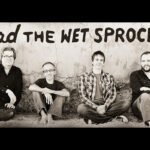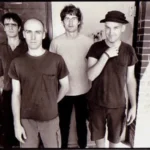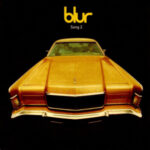 Toad the Wet Sprocket, the alternative rock band that emerged in the late 1980s, holds a special place in the hearts of fans for its melodic, introspective sound and thoughtful lyrics. Known for hits like “All I Want,” “Walk on the Ocean,” and “Fall Down,” the band achieved significant success during the 1990s, with several albums reaching the top of the charts. Though their journey included periods of hiatus and reinvention, Toad the Wet Sprocket remains a beloved name in alternative rock, representing an era when emotional depth and musical craft were highly valued.
Toad the Wet Sprocket, the alternative rock band that emerged in the late 1980s, holds a special place in the hearts of fans for its melodic, introspective sound and thoughtful lyrics. Known for hits like “All I Want,” “Walk on the Ocean,” and “Fall Down,” the band achieved significant success during the 1990s, with several albums reaching the top of the charts. Though their journey included periods of hiatus and reinvention, Toad the Wet Sprocket remains a beloved name in alternative rock, representing an era when emotional depth and musical craft were highly valued.
The Origins: From High School Band to Recording Artists
Toad the Wet Sprocket was formed in 1986 in Santa Barbara, California. The founding members—Glen Phillips (vocals and guitar), Todd Nichols (guitar), Dean Dinning (bass), and Randy Guss (drums)—were still in high school when they began playing music together. The name “Toad the Wet Sprocket” came from a comedic sketch in Monty Python’s Contractual Obligation Album. Intended as a humorous placeholder, the name stuck and became an iconic identifier for the band.
Their early days were characterized by experimentation and an eagerness to create music that resonated emotionally. The band drew inspiration from a variety of sources, including folk, rock, and college radio staples like R.E.M. and 10,000 Maniacs. This eclectic mix of influences would define their unique sound: melodic, heartfelt, and often reflective.
The Breakthrough: Bread and Circus
In 1989, Toad the Wet Sprocket self-released their debut album, Bread and Circus, which they recorded in just eight days on a budget of $650. The album showcased their potential, with songs that combined introspective lyrics with catchy melodies. Tracks like “Way Away” and “One Little Girl” hinted at the band’s future success.
Bread and Circus caught the attention of music executives, leading to a deal with Columbia Records. The label re-released the album, giving it wider exposure and establishing the band as a promising act in the alternative music scene.
Rising to Prominence: Pale and Fear
Toad the Wet Sprocket’s sophomore album, Pale (1990), marked a significant step forward in their evolution. The album had a darker, more mature tone, with songs like “Come Back Down” and “Jam” exploring themes of loss and self-discovery. Though not a massive commercial success, Pale solidified the band’s reputation as skilled songwriters and performers.
It was their third album, Fear (1991), that catapulted Toad the Wet Sprocket to mainstream success. The album produced two major hits, “All I Want” and “Walk on the Ocean,” both of which received heavy airplay on radio and MTV. These songs showcased the band’s ability to blend heartfelt lyrics with soaring melodies, earning them a devoted following.
Fear achieved platinum status and positioned Toad the Wet Sprocket as a leading voice in the alternative rock movement of the early 1990s. The album’s introspective and relatable themes resonated with audiences, while the band’s accessible sound made them a favorite on college campuses and among a wider mainstream audience.
Peak Success: Dulcinea and In Light Syrup
Building on the momentum of Fear, Toad the Wet Sprocket released Dulcinea in 1994. The album continued their winning streak, featuring hits like “Fall Down” and “Something’s Always Wrong.” Dulcinea was both a commercial and critical success, earning gold certification and widespread praise for its thoughtful songwriting and polished production.
The album’s title was inspired by Don Quixote’s idealized love interest in Cervantes’ classic novel, reflecting the band’s penchant for literary and philosophical themes. Songs like “Windmills” and “Woodburning” explored existential questions, while maintaining the melodic accessibility that defined their sound.
During this period, the band also released In Light Syrup (1995), a collection of B-sides and rarities. The compilation included fan-favorite tracks like “Good Intentions,” which was featured on the Friends TV show soundtrack, further cementing the band’s place in popular culture.
Challenges and Transition: Coil and Disbandment
By the mid-1990s, Toad the Wet Sprocket faced challenges that many bands encounter after years of relentless touring and recording. While their fifth studio album, Coil (1997), featured strong tracks like “Come Down” and “Whatever I Fear,” it did not achieve the same commercial success as its predecessors. The changing musical landscape, with grunge and heavier rock dominating the airwaves, made it difficult for the band’s melodic and introspective style to maintain its prominence.
Internal tensions also began to surface, as the members struggled with the pressures of the music industry and their differing personal goals. In 1998, Toad the Wet Sprocket announced their breakup, leaving fans uncertain about the band’s future.
Post-Breakup Projects and Solo Careers
Following the breakup, the members pursued individual projects. Glen Phillips embarked on a successful solo career, releasing a series of critically acclaimed albums, including Abulum (2000) and Winter Pays for Summer (2005). His solo work retained the introspective and melodic qualities of Toad the Wet Sprocket, while exploring new sonic landscapes.
Todd Nichols and Dean Dinning formed the band Lapdog, which allowed them to continue making music together. Their work in Lapdog reflected elements of Toad’s sound, while showcasing their evolution as musicians.
Randy Guss focused on personal projects and eventually stepped away from active performance due to health issues.
Reunions and Renewed Success
Despite their breakup, Toad the Wet Sprocket remained connected to their fans, reuniting periodically for tours and special performances. In 2006, the band officially reunited and began touring regularly, rekindling their creative chemistry and reconnecting with their audience.
Their renewed collaboration culminated in the release of New Constellation (2013), their first studio album in 16 years. Funded through a successful Kickstarter campaign, the album demonstrated the enduring loyalty of their fanbase. New Constellation featured tracks like “The Moment” and “California Wasted,” which captured the essence of their classic sound while embracing contemporary influences.
In 2021, the band released Starting Now, further solidifying their status as enduring artists. The album reflected their growth and maturity, addressing themes of resilience, love, and hope.
Legacy and Influence
Toad the Wet Sprocket’s legacy lies in their ability to create music that resonates deeply with listeners. Their songs, characterized by introspective lyrics, rich melodies, and heartfelt performances, have stood the test of time. They are often cited as an influence by contemporary artists who admire their authenticity and craftsmanship.
The band’s commitment to staying true to their artistic vision, even in the face of industry pressures, has earned them respect and admiration. Their music continues to find new audiences, ensuring that the legacy of Toad the Wet Sprocket remains vibrant and enduring.
Conclusion
Toad the Wet Sprocket’s journey is one of perseverance, creativity, and connection. From their humble beginnings in Santa Barbara to their rise as alternative rock icons, the band has left an indelible mark on the music world. Their ability to navigate challenges, reinvent themselves, and stay true to their artistic identity speaks to their enduring appeal.
Whether through their timeless hits or their ongoing creative endeavors, Toad the Wet Sprocket remains a cherished presence in the hearts of fans, embodying the spirit of a band that has always been more than the sum of its parts.
This post has already been read 283 times!









